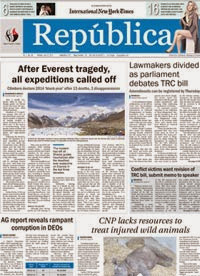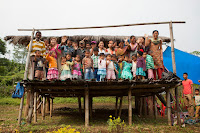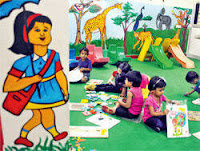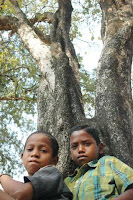[MLE] Textbooks in 5 tribal languages released
Last month textbooks in 5 tribal languages and 2 regional languages were released by the government of Jharkhand. Last month textbooks in 5 tribal languages and 2 regional languages were released by the government of Jharkhand. They have been distributed to around 1,000 schools in 8 districts for initiating the Mother-Tongue-Based Multilingual Educati













